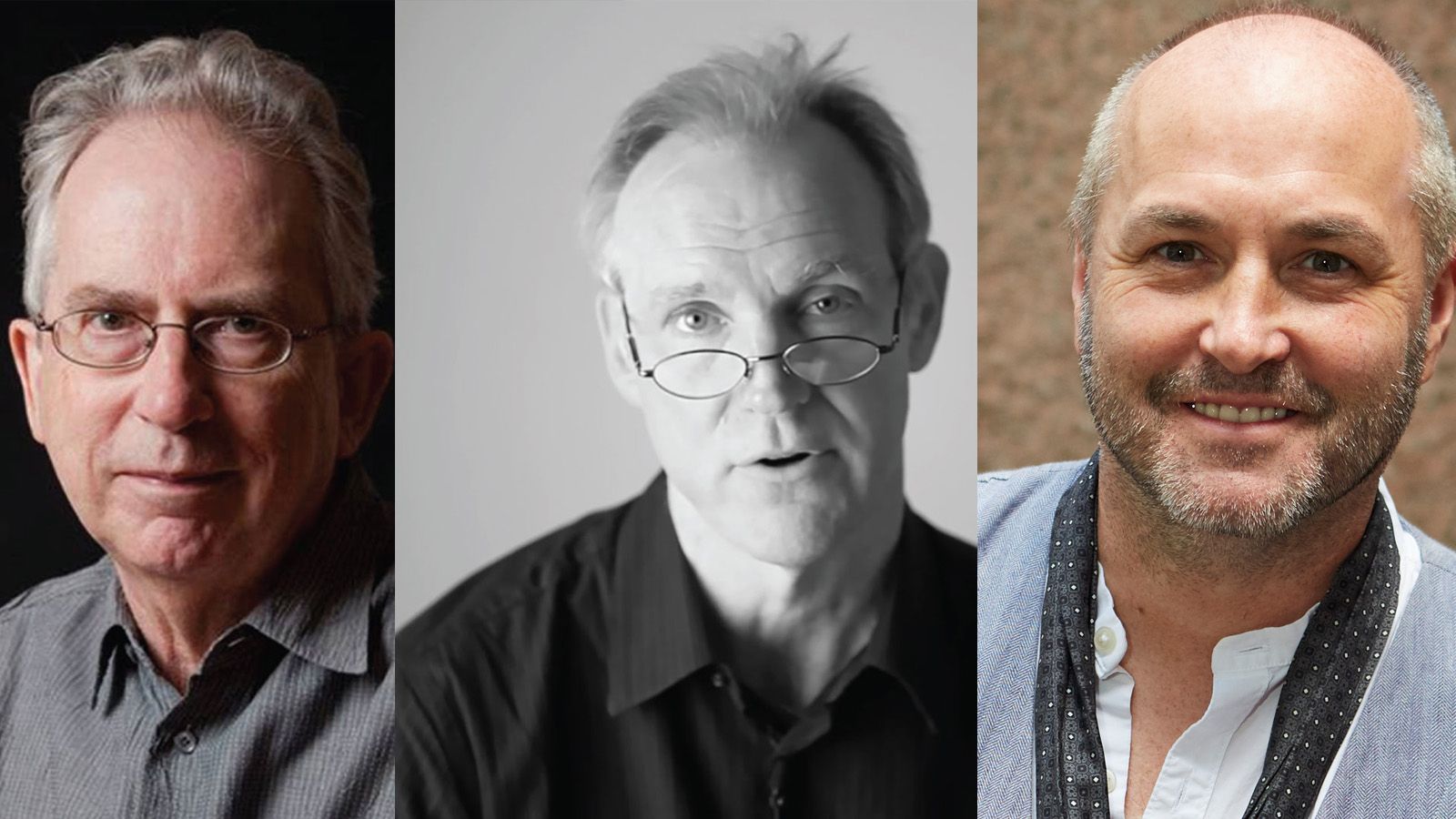You can’t teach people to be artists,” says Peter Carey, a two-time winner of the Booker Prize. “But you can select talented, ambitious, hardworking people whose gifts you can develop."
The Australian novelist should know. He is executive director of Hunter’s MFA in Creative Writing Program, which has developed over the last decade into the premier training ground for great American authors like National Book Award winner Phil Klay (MFA '11).
The number of applicants to the rigorous two-year program—now ranked the most competitive in New York City—ranges from 600 to 800 each year, with an acceptance rate of a little over two percent. Prospective students apply to one of three genres—poetry, fiction, or memoir—and first- and second-year students work side-by-side in workshop, craft and literature courses, culminating in an intensive thesis project that, for many, becomes the basis for their first book.
Tom Sleigh, the director and senior poet, who runs the program alongside Carey, speaks to its success. “My colleagues are deeply committed to being serious teachers, and that’s inspiring to me, as it is to their students,” said Sleigh, a frequent contributor to The New Yorker and winner of the 2008 Kingsley Tufts Poetry Award, a major literary prize. Another “huge, huge plus,” he noted, is the program’s intimate size. “With so few students, everyone gets a careful, close reading of their work, and we get to know our students really well.”
Because Hunter is in the nation’s literary capital, that community of teachers and students is fluid and ever-expanding, with an array of distinguished visitors. Faculty members regularly welcome other renowned authors to their classrooms, not only to teach and answer questions about the craft and life of a writer, but also to engage in one-on-one conversation with students.
Documentary filmmaker and fiction writer Sadia Shepard (MFA ’15) noted that Hunter’s faculty is actively engaged in teaching, which stood out as she compared various MFA programs. “There really was no question,” she said. “The idea that writers like Peter Carey, Colum McCann and Claire Messud would be accessible to me was tremendously exciting.”
Amy Jo Burns (MFA ’11) said that when she set out to write a memoir about growing up in the Pennsylvania Rust Belt, she “fell in love” with the MFA program’s methodology—and was excited by both “the opportunity to work for two years straight with Kathryn Harrison and Louise DeSalvo and the knowledge that Hunter brings other wonderful writers to the room.” During her first year alone, she said, those visiting authors included two of her favorites, Jonathan Safran Foer and Nicole Krauss.
When Burns’s memoir, Cinderland, was published last fall by Beacon Press, The Boston Globe praised its “compelling” depiction of growing up in a dying town—portraying football games, homecoming and summers at the pool as “not quaint but stifling and ominous.” While Burns was writing about her hometown, Bill Cheng (MFA ’10) set his book Southern Cross the Dog in a place he’d never seen. Cheng had always loved the blues, and inspired by the MFA program’s exhilarating environment, wrote an ambitious, deeply meaningful work about an African-American boy growing up in the Mississippi Delta of the 1920s.
A New York Times book review marveled at this remarkable debut novel “written in the finest Southern Gothic tradition [by] a 29-year-old Chinese-American from Queens who has never set foot in Mississippi.”
Cheng acknowledged that he came to Hunter with no thought of writing a sprawling historical novel filled with the life and language of an unfamiliar region and era. But at Hunter, he said “that was the atmosphere created for us.”
Cheng explained, “Among the students ourselves, there was a shared understanding of what was at stake—the idea that each of us wanted to do something that hadn’t been done before. For two years, you were surrounded by amazing people, and you wanted to bring the best of yourself into that classroom.”


